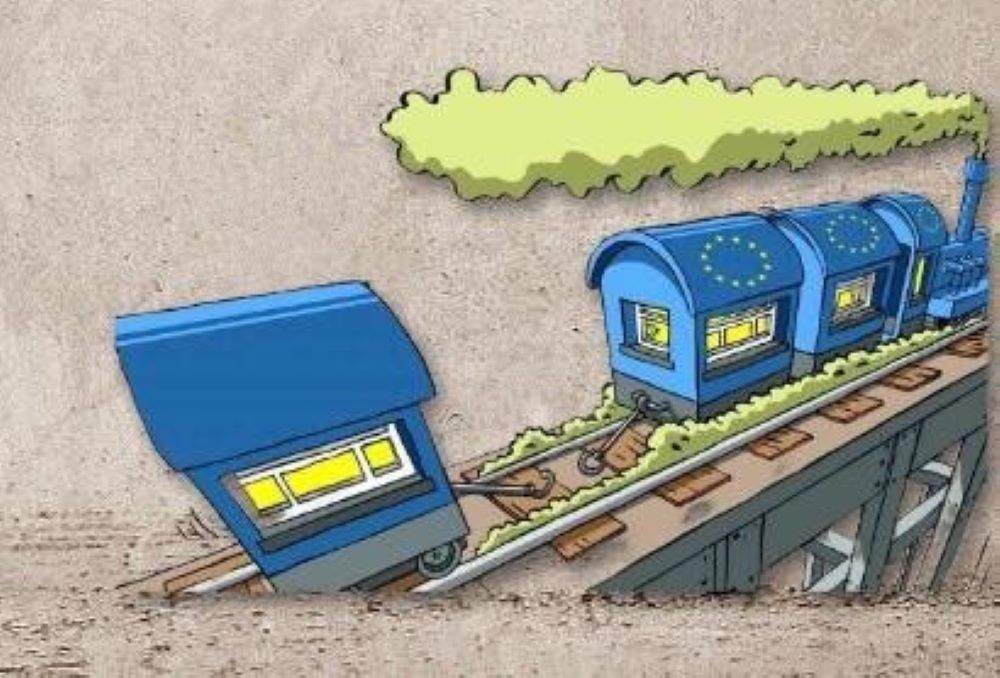Maybe the service on the train is not the best, and the train may be late, but we are still standing at the same station as we did 30 years ago, believing that the departing train will fall apart and that ‘the Serb will outwit all the others at the end of the joke.’

Vladimir Medjak
When I started studying law in Belgrade in 1995, the first thing I heard about the European Union was that it was falling apart and it would not live to see the end of the decade. I graduated from the Faculty of Law in the year 2000, and aside from one paragraph in a book on International Public Law published in 1989, the EU was not included in any part of our curriculum. There was certainly no need for that, considering it was just about to fall apart.
This mantra, no matter how wrong it’s been proven, has survived to this day. As soon as someone is looking to justify their lack of action towards Serbia joining the EU, or wants to embrace the anti-EU worldview in their quasi-intellectual position, they immediately reach for this matra, which of course does not even need evidence.
And just like Nusic revealed universal wisdom in his play A Member of Parliament to chief Jevrerm – that every speech should start with “the people know…”, because no one should say that the people actually have no idea about the basic facts on the given topic – we often see universal postulates in discussions on the EU presenting themselves as axioms. ‘The EU is falling apart, so why would we even want to join’, ‘The EU is an ossified, bureaucratic organization’, ‘The benefits of EU membership are not that significant, it is very expensive’… Each of these phrases, in fact, presents a justification as to why Serbia, unlike its vicinity, is not part of the EU.
Although each of these statements is proven obsolete after the first in-depth question, or after the first contact with any official data from any serious website – so not on wikipedia or thismantoldme.com at the hairdressers’ – a lack of public debate in the media and the open anti-EU campaign led by the government through the tabloids brings these fabrications to the rank of proven scientific facts.
In addition to the already tried phrases, new ones have been cropping up, like: ‘Serbia has done everything to enter the EU, now it is up to the EU to decide whether it wants us’. The problem with this latest postulate becomes apparent when ‘Serbia has done everything’ is confronted with the reality of Serbia in 2021.
In 2014, Serbia opened EU accession negotiations as a free state, with a semi-consolidated democracy, which ranked 54th in the world in terms of freedom of speech. In 2021, Serbia is no longer considered free or a democracy, and we are in the 93rd place in terms of freedom of speech.
Since freedom, democracy, and freedom of speech are the foundational values of the EU, it is questionable whether Serbia today would get the status of a candidate state at all, which it did without any issues in the freedom domain back in March 2012. Today, Serbia is among 10 world countries with the largest decline in democracy and the highest degree of autocratization since 2010, and some already classify us among autocratic countries.
The European integration process became the process of unification of the European continent in the early 1990s. At that time, Serbia found itself on the wrong side of the civilisational border and took a detour, indeed for the first time in its recent history after 1804. That’s when we missed the main process train in Europe.
At one point in time, after October 5th, it seemed that we could still arrive in time, and we really started to catch up. But now the train is leaving the station again and we are staying behind, complaining about the service and the coffee, and the cleanliness of the compartments on the train. Maybe the service on the train is not the best, and the train may be late, but we are still standing at the same station as we did 30 years ago, believing that the departing train will fall apart and that ‘the Serb will outwit all the others at the end of the joke.’
Only the “joke” never ends, and the passengers on the train have left towards their destination.
Vladimir Medjak, European Law and European Integrations expert. Current Vice President of the European Movement in Serbia and former Assistant Director of the Office for European Integration of the Government of Serbia.



Leave A Comment